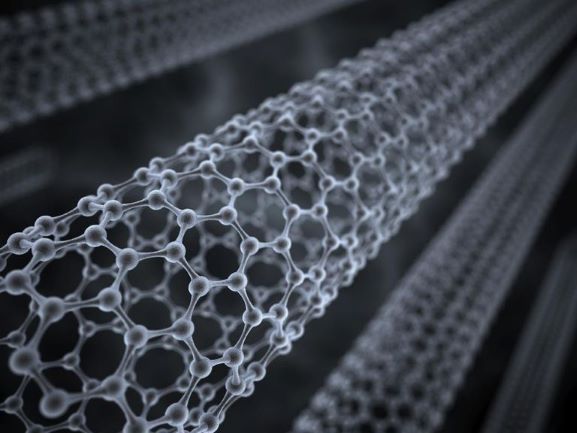

Research from Swansea University has found how plastics commonly found in food packaging can be recycled to create new materials like carbon nanotubes, which can not only conduct heat and electricity but also help reduce plastic waste.
The research, published in The Journal for Carbon Research, focuses on chemical recycling which uses the constituent elements of the plastic to make new materials.
While all plastics are made of carbon, hydrogen and sometimes oxygen, the amounts and arrangements of these three elements make each plastic unique.
As plastics are very pure and highly refined chemicals, they can be broken down into these elements and then bonded in different arrangements to make high-value materials such as carbon nanotubes.
“Carbon nanotubes are tiny molecules with incredible physical properties. The structure of a carbon nanotube looks a piece of chicken wire wrapped into a cylinder and when carbon is arranged like this it can conduct both heat and electricity,” said Alvin Orbaek White, from Swansea University.
“These two different forms of energy are each very important to control and use in the right quantities, depending on your needs,” White said.
“Nanotubes can be used to make a huge range of things, such as conductive films for touchscreen displays, flexible electronics fabrics that create energy, antennas for 5G networks while NASA has used them to prevent electric shocks on the Juno spacecraft,” he said.
The team tested plastics, in particular, black plastics, which are commonly used as packaging for ready meals and fruit and vegetables in supermarkets but can’t be easily recycled.
They removed the carbon and then constructed nanotube molecules from the bottom up using the carbon atoms and used the nanotubes to transmit electricity to a light bulb in a small demonstrator model.
“The research is significant as carbon nanotubes can be used to solve the problem of electricity cables overheating and failing, which is responsible for about 8 percent of electricity is lost in transmission and distribution globally,” White said. The researchers now plan to make high purity carbon electrical cables using waste plastic materials and to improve the nanotube material’s electrical performance and increase the output.
India’s ethanol initiative has helped India save Rs. 1,26,210 crore in foreign exchange by reducing…
Noida-based green energy leader NexGen Energia Ltd has secured a $1 billion equity investment commitment…
As Odisha takes firm steps toward a just transition from fossil fuels to renewable energy,…
Bio-Integrated cladding for greener cities, an innovative solution by a 29-year-old Indian architect, has won…
In a novel move, Farmwatt Innovation has launched a long-term training and capacity-building initiative focused…
State owned Bharat Petroleum Corporation Ltd (BPCL) has joined hands with GPS Renewables Pvt Ltd…